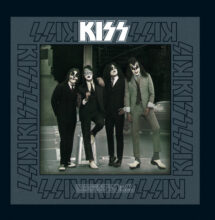Tommy James has one of the most extraordinary backstories in rock history. His career began like a fairytale – a teenage hit, a quick rise to fame – but what followed was a cautionary tale of music and the mob. In an exclusive conversation with Noise11, Tommy revealed how his label, Roulette Records, became both his golden ticket and his biggest trap.
Watch the Noise11 Tommy James interview here:
“I was 16 when I recorded Hanky Panky,” Tommy said. “It was a local record, a one-off. I never imagined it would come back to change my life.”
Three years after its original release, Hanky Panky resurfaced – not in Michigan where it was recorded, but in Pittsburgh. DJs there found the old single, started spinning it, and suddenly the record was a hit. By the time Tommy arrived in New York to secure a national release, he was a hot property.
“Every label wanted it – CBS, RCA, Atlantic,” he recalled. “Then one phone call changed everything. Morris Levy from Roulette Records called the others and told them to back off. That’s how I ended up on Roulette – with what you might call an offer I couldn’t refuse.”
What Tommy didn’t know at the time was that Roulette Records was more than just a record label. Levy, the company’s founder, was deeply connected to the Genovese crime family. For Tommy, that discovery came later – long after the hits started rolling in.
“Roulette was a functioning record label, but it was also a front for the mob,” he said. “When I first realised that, it scared me. But at the same time, Roulette gave me freedom I never would’ve had at a major label. I got to produce my own records, learn the business, and experiment in the studio.”
That creative freedom defined Tommy James & The Shondells’ sound. From the infectious energy of Mony Mony to the dreamlike textures of Crimson And Clover, the Roulette years produced a string of defining hits.
“We wanted Mony Mony to be a party record,” Tommy said. “We couldn’t come up with a name until we looked out my apartment window and saw the Mutual of New York sign – M-O-N-Y. It was divine intervention. Roulette thought it was too silly. I told them, ‘After Hanky Panky, you’re worried about silly?’”
When Crimson And Clover arrived in 1968, it marked a turning point – not just for Tommy, but for pop music itself.
“That title came to me in a dream,” he said. “We made a rough mix, and I took it to WLS in Chicago. They secretly taped it and started playing it every half hour. That demo became the final record. The version you hear wasn’t even properly mixed.”
By then, James was one of the most successful artists in America. But behind the hits, the business was far from clean.
“Getting paid was another story,” he admitted. “We sold over 110 million records, had 23 gold singles, and I never saw a cent in mechanical royalties. You’d ask about the money, and they’d say, ‘You’re doing fine, kid – go make another record.’ And you didn’t argue, because people who argued didn’t always have happy endings.”
The stories around Roulette were the stuff of mob folklore.
“You’d hear things,” Tommy said quietly. “About people who got beaten up, left for dead. You learned not to push too hard. Fear was part of it.”
Despite the danger, James doesn’t speak of Roulette with bitterness alone.
“Without Roulette, I might have been a one-hit wonder,” he reflected. “They let me experiment. They let me grow up in the studio. Crimson And Clover gave me the second half of my career, Sweet Cherry Wine, Crystal Blue Persuasion, Draggin’ The Line – that’s the legacy I’m proud of.”
Years later, after the last of the mob figures tied to Roulette died in prison, James finally told his full story in the 2010 autobiography Me, The Mob And The Music.
“We had to shelve the book for years because I was afraid,” he said. “When the last of those guys passed away, we finished it. It was cathartic.”
Now, Me, The Mob And The Music is being developed as a television series. “A movie wouldn’t be enough,” Tommy said. “A series lets you develop the characters, the fear, the humour – all of it. It’s a hell of a story.”
It is indeed. Tommy James’ career is one of rock’s most improbable survival stories – a testament to talent, timing, and resilience in an era when the business could be as dangerous as it was glamorous.
Stay updated with your free Noise11.com daily music news email alert. Subscribe to Noise11 Music News here
Be the first to see NOISE11.com’s newest interviews and special features on YouTube. See things first—Subscribe to Noise11 on YouTube
Follow Noise11.com on social media:
Bluesky
Facebook – Comment on the news of the day

















